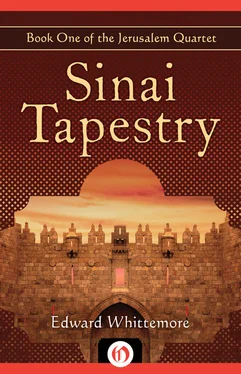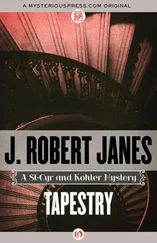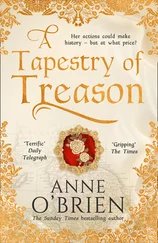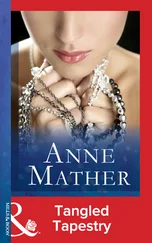Jaysus, he whispered, I just hate to disappoint but I have to give it up now. I can’t run and I can’t hide and people are clubbed because of me and I can’t, help them, I only make it worse. You know what they’re saying now? They’re saying he’s gone and it’s true, I’m lost to them.
The roomful of men solemnly raised their mugs to him.
I know, he whispered, Jaysus I do know and I’d do anything rather than disappoint, I’d stay and stay if it could do any good but it can’t. I tried and it worked for a while but the while’s up and what I told you just now, Jaysus it’s the truth and I’m done, they’ve done me in, he’s gone.
He raised his hand in farewell and limped away from the vacant lot across a bridge and crawled down a coalbin into a cellar. There an elderly carter told him the plan for his escape was ready, adding that the Black and Tans had tortured someone on the west coast and discovered their old enemy of the musketoon was in Cork. By noon the next day they would arrive in force, seal the city and begin the search.
The Black and Tans arrived well before noon but still too late. Early that morning a small freighter had sailed from the harbor with a cargo of whiskey and potatoes for the English garrison in Palestine. In addition the freighter carried a dozen nuns bound on a pilgrimage to the Holy Land.
The journey the nuns were about to make was exceptional, for they were Poor Clares who ordinarily would never have been allowed out of their convent, let alone out of the country. The cause of their going was a request for a pilgrimage made by a reverend mother from a less strict order who had been in charge of the convent at the end of the eighteenth century, before the Poor Clares had acquired it. But the Napoleonic wars had intervened and after that the convent changed hands.
Just what had happened to the request during the nineteenth century was uncertain. In any case it reappeared when the Vatican’s files were reorganized at the end of the First World War, and thus one hundred and twenty-five years later a decree suddenly arrived at the convent directing the reverend mother to take eleven of her nuns on the pilgrimage.
The reverend mother was stunned. She wrote to her bishop, who was equally stunned, but he could only reply that an order from the Holy See was an order to be obeyed. Although it was incomprehensible, the Holy Father must have had his reasons for sending Poor Clares on this fearful voyage.
The nuns were chosen on the basis of age and ranged from seventy to ninety years old. All were unusually tall save for one who was small and dark with a shadow of what might have been newly shaved hair above the lip.
The Poor Clares weren’t allowed to speak and the formalities on the wharf were handled by the bishop, the nuns rustling their beads and fluttering in circles so that it was even difficult to count them. But their excitement over visiting the Holy Land after waiting a century and a quarter seemed reasonable enough to the English officials, so their documents were processed quickly and they disappeared on board the freighter in a flurry of swirling black habits.
The nuns were not seen again until the freighter docked in Jaffa. The dusty journey up through the hills was made. The carriages approached New Gate and were soon surrounded by the usual crowds of thieves and mastic-sellers and pilgrims spitting and cursing and praying as they squeezed into the narrow alleys of commerce and paradise. Just outside the gate a small dark man in a shabby Arab cloak and Arab headgear was seen to cringe on one of the running boards, hand outstretched to beg.
But the policeman on duty at the gate was quick to give the beggar a solid blow on the head with his baton, thereby reducing the Poor Clares to an even dozen and sending the biggest of the little people sprawling across the cobblestones of Jerusalem.
Joe squatted outside the entrance to the Franciscan enclave in the Old City still dressed as an Arab beggar, whispering furtively in Gaelic when a priest came by, assuming a priest from any country other than Ireland would mistake his words for some garbled Arab dialect.
He spent a day at the main entrance and successive days outside the wine cellar and the olive-oil press. Famished by nightfall, he dragged himself to the entrance of the bakery.
No one appeared at the door in the morning. Soon the sun was overhead. With the heat overcoming him he slipped lower, into the gutter. Sometime during the afternoon he had a dream the door was opening.
We ourselves, he whispered in Gaelic into the dirt, repeating the name of the Irish revolutionary party. In his dream a shadow fell across him.
What’s that? said a soft voice, also in Gaelic.
Love, the forgiving hand to victory, whispered Joe, repeating the legend of the O’Sullivan Beare clan.
Is that so? Is that who you are, lad? But what ails you lying in a Jerusalem gutter dressed like that? Inside with you before a policeman comes by.
The old priest pulled him out of the alley into the cool depths of the bakery. He locked the door and poured water over Joe, then stuffed his mouth with bread and watched him eat. When Joe was able to talk he told his story, the old priest nodding his head vehemently at each new turn in the account.
Was your father in the Fenian movement? he said at the end.
That he was, Father.
Well so was I but the Church made me leave it. Of the seven men in my cell six were O’Sullivan Beares named Joseph. Your father might have been one of them. Anything special for me to go on?
Prophecy.
Ah that one, I knew him all right. He used to say he was going to have twenty or thirty sons and I admonished him to be happy with what God gave him. Happy I will be, he said, it’s just that I already know. Well that’s fine for seventy years ago but what are we going to do now? Here you are a former terror of the Black and Tans wanted for patriotism and other heinous crimes, in English territory without papers. Drop our lovely mother tongue and repeat after me. Yes I am English actually but I was born with faulty vocal cords and multiple speech impediments.
Joe did so.
Atrocious, said the priest. That wouldn’t even begin to fool an Arab.
We ourselves? whispered Joe hopefully.
Not this time, it’s just not enough. We’ll need some help if you’re not to be caught. Now sit there while I stoke up the oven. I’ve been the baker here for sixty years and I do my best thinking at the oven, so you sit and I’ll bake.
The old priest began kneading dough and baking loaves of bread that came out in various irregular shapes. One was clearly a cross and another had roughly the shape of Ireland. The third might have been meant to represent the shape of the walls of the Old City, but the fourth was an unrecognizable oval slightly angular at the top and more so at the ends. Before long the corners of the bakery were heaped with bread.
What’s that loaf? asked Joe.
Which one?
That corner there.
The Crimea of course.
The priest turned back to the oven but all at once his cassock twirled and his sandals slapped the stones. He had broken into a dance.
But that’s the answer, lad, why didn’t I think of it? You’re the reason why I wasted that time in the army, old Joe’s son on the run’s the reason.
The priest, dripping with sweat, renewed his little dance in front of the open oven door. Right there, thought Joe, and at it sixty years no less. Been doing it so long the brains have melted. Out of the gutter but as finished as ever.
Which army was that, Father?
Her Majesty’s own, what else. Before you jigs a former officer of light cavalry with several medals from the allies not to mention the Victoria Cross from herself.
Читать дальше












